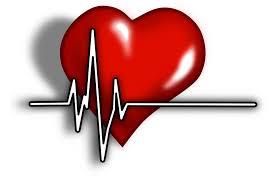The signs and symptoms of Heart Failure are not always easy to detect. But with awareness of family history (genetics), personal behavior (diet, exercise regime, drug abuse, alcohol and sodium intake), and health related problems (diabetes, infection, anemia, and thyroid problems), a person may determine whether or not they may be at a high risk for Heart Failure.
Divabetic Club – Philadelphia will GO RED! on Thursday, February 18, 2016 to raise awareness heart disease in the diabetes community.
The American College of Cardiology (ACC) and the American Heart Association (AHA) have identified the Stages of Heart Failure. The stages are more recent and they complement the NHYA classification (See-Classifications of Heart Failure). The four stages are set up as follows: Stage A, Stage B, Stage C, and Stage D.
If you have a history of the aforementioned problems, or if you have a diet high in fat, abuse alcohol or drugs, or smoke, you may be a high risk candidate for Stage A Heart Failure.
Stage B Heart Failure candidates have probably never experienced symptoms of HF, but have been diagnosed with the disease. There is clear evidence of Heart Failure during diagnosis but no clear symptoms. At this point a physician may prescribe medication such as ACE Inhibitors or Beta Blockers (See-Glossary) There will be close monitoring of blood pressure (hypertension OR hypotension-See Glossary).
In Stage C, cardiac dysfunction is present, as are symptoms. Tiredness while performing simple activities like walking or bending over, are common symptoms. Shortness of breath and overall fatigue are present. In Stage C strict attention should be paid to exercise (consult your physician), eating properly (with low sodium intake) and little to no alcohol consumption.
Patients in Stage D of Heart Failure show signs and symptoms of HF even though they have undergone treatment and therapy. Monitoring of diet, exercise, and blood pressure is still adhered to during Stage D. Patients will probably be prescribed medications, depending on the person and the extent of Heart Failure. This stage is associated with surgical options (depending on severity) including, but not limited to:
- Placement of a conventional Pacemaker;
- Placement of a ventricular device such as a BiV (See-Biventricular Pacemakers May Help Heart Beat More Effectively in Advanced Heart Failure Patients)
- LVR (See- Left Ventricular Reconstruction Surgery a Viable Possibility for Certain Advanced Heart Failure Patients); or
- A heart transplant
As with all health concerns a person should consult their physician before making a self-diagnosis or practicing self-treatment.
DON’T MISS: Our special tribute to Natalie Cole on Diabetes Late Nite podcast featuring music by Adele on Tuesday, January 12, 2016, 6-7 PM, EST.


